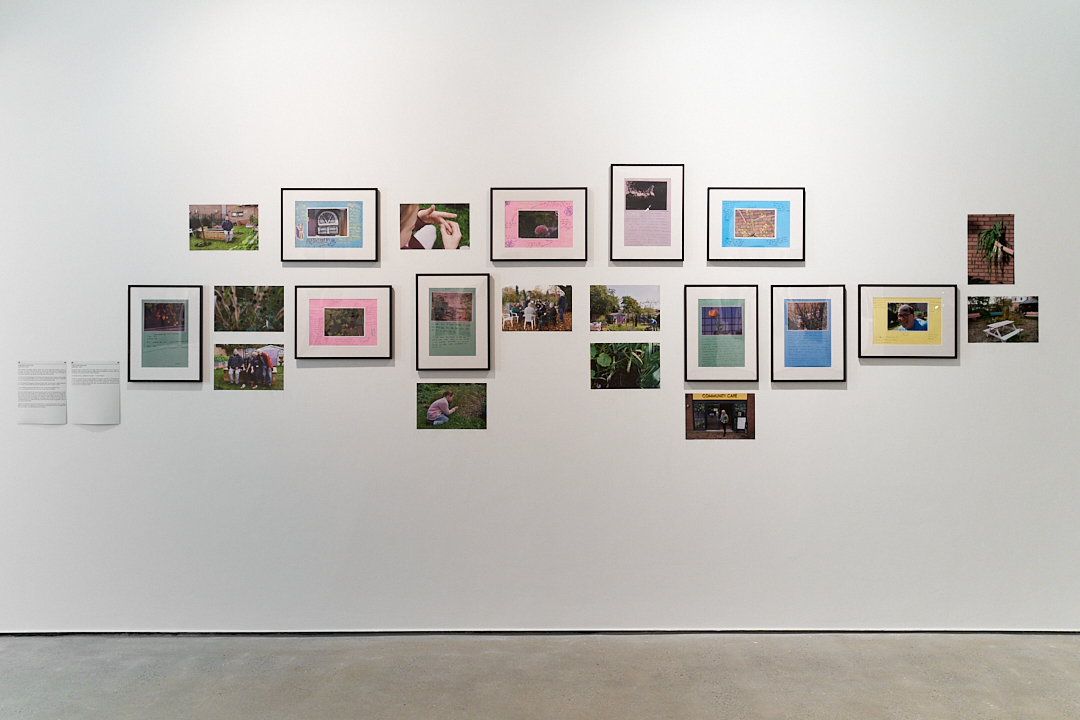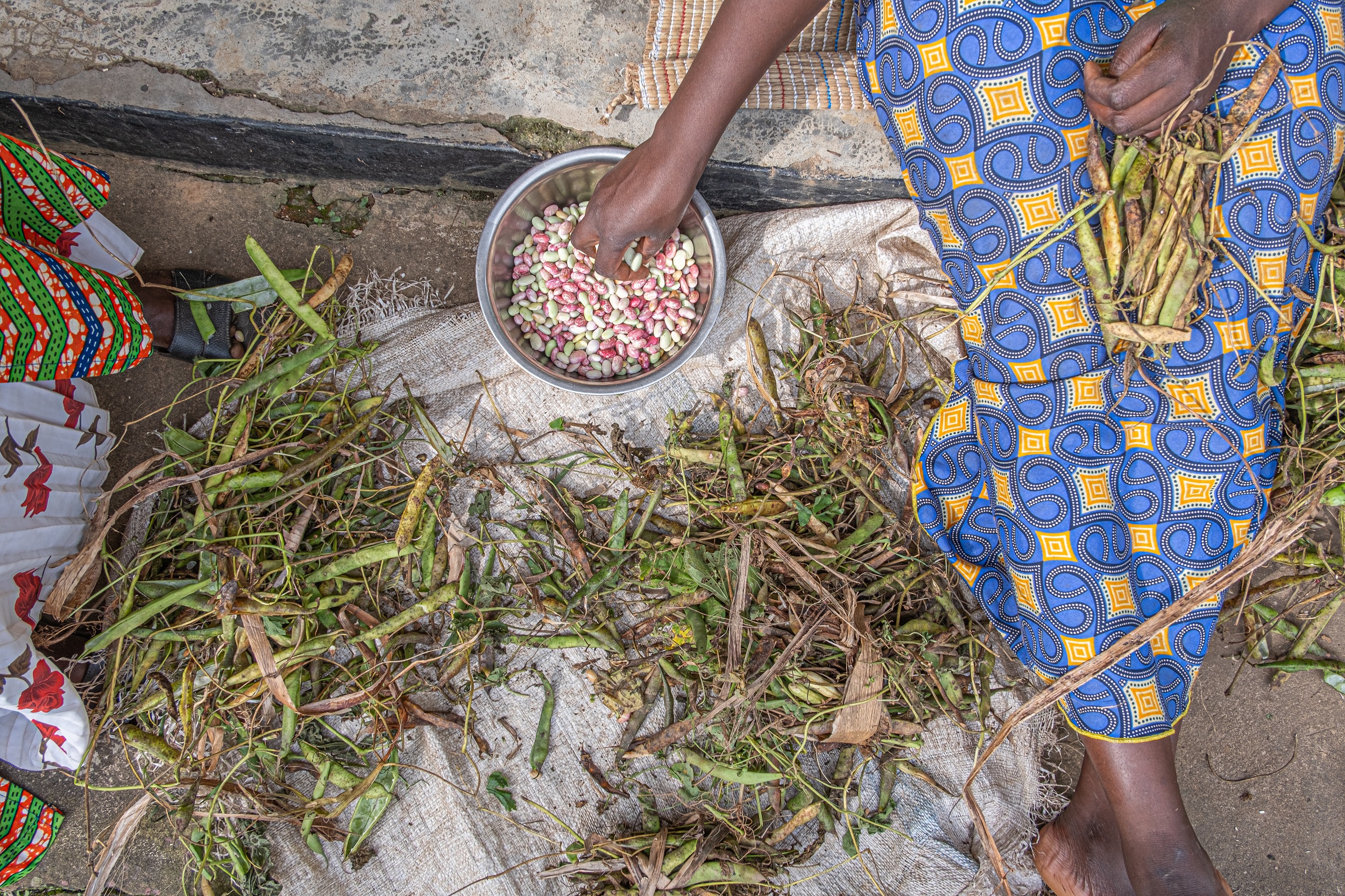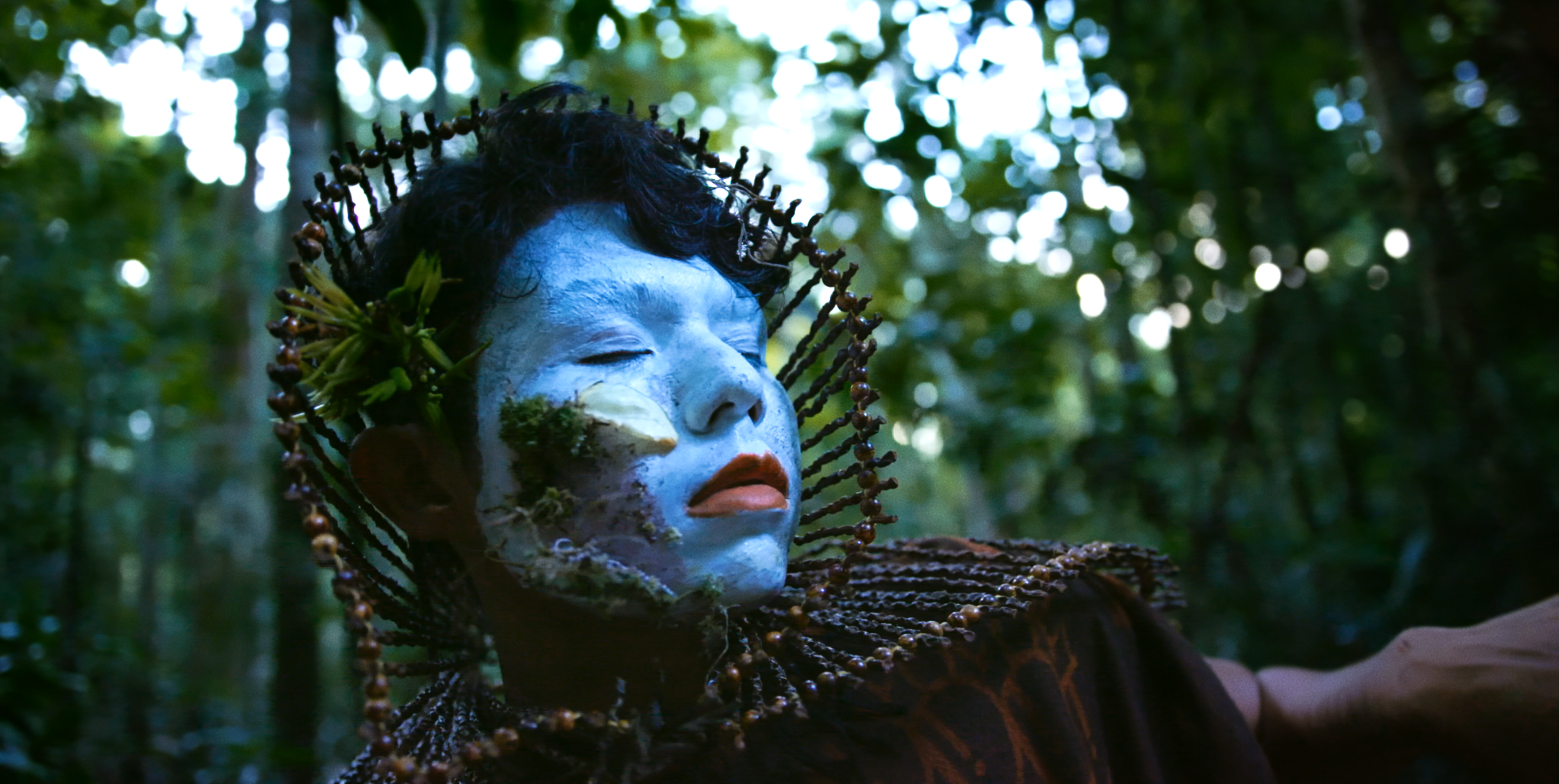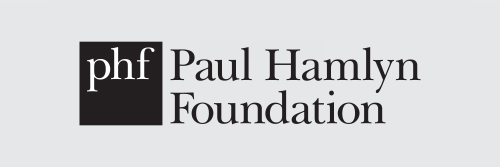


Nature and indigenous representations in contemporary Brazilian photography
The LOOK Climate Lab 2024 presents many artworks reflecting on how people are rekindling their connection with nature throughout the world. This can be seen through two projects: Home Grown Knowledge by Gwen Riley Jones depicts sustainable and community based farming in the UK, whereas Hellen Songa’s Urugo photographed her visit to Rwanda and Zambia, documenting activities related to nature, farming, crafts, health and more. These artworks explore first-hand experiences regarding the relationship between humans and nature. However, one might ask in what other ways can humans relate to nature? Also, how is this done in other parts of the world?
The projects in the LOOK Climate Lab 2024 can be compared with the aims of the artwork Retomada [Recovery] (2021) by Brazilian indigenous artist Uýra, who explores the concept of nature through photo performance, conveying a sense of identity intertwined with nature. Before delving into Uýra’s artwork, it is important to establish an overview of how Brazil’s forests and inhabitants have been historically portrayed.
The first representations of Brazil in the arts were mainly given by European colonisers and travellers that reached its shores. In the 16th century, the Portuguese arrived in a land already populated by many indigenous peoples, who were consistently killed by the colonisation process. Throughout the years, there were many paintings and drawings depicting the “exotic” Portuguese colony, most of them which depicted lush forests and indigenous people to represent the Brazilian population. In fact, the country was mostly populated by Portuguese colonisers, enslaved people brought from different parts of the African continent, and very few indigenous people.
Many travellers reported curiosities about the land, marvelled on its flora, fauna, and indigenous people. The influence of this foreign gaze remained evident even in the late 19th century, when the Imperial Academy of Fine Arts in Rio de Janeiro was replicating European styles. In the early 20th century, however, the anthropophagic movement in the Brazilian modernism managed to absorb foreign techniques mixed with a Brazilian perspective to create an authentic artistic expression. Brazilian art has then taken many different forms throughout the years, covering the most varied mediums and themes.
This very simplified — and far from comprehensive — historical overview of Brazil’s history and representation is useful as a background, especially for people who might not be familiar with these facts. Even though there has been a lot of foreign influence, the importance of the indigenous people in Brazil and its identity cannot be disregarded. In fact, there are many Brazilian contemporary artists who are actively defending indigenous peoples’ and forest’s rights, showing how activism is deeply rooted in these artistic practices. It is nearly impossible to dissociate their cultures to their relationship to their surroundings. In addition to that, their territories, like the ones in the Amazon Forest, are constantly threatened and are being invaded by land grabbers who deforest and kill indigenous people to steal their land for farming, cattle raising and illegal gold mining. Indigenous peoples are at the forefront of this struggle and bear the biggest brunt of it.
Just to name a few Brazilian artists who touch on indigenous themes: Gê Viana, Glicéria Tupinambá, Edgar Kanaykõ Xakriabá, Claudia Andujar, Jaider Esbell and Daiara Tukano advocate for indigenous rights through their art projects. Uýra is one of many artists who are reclaiming the discourse on indigenous people and their representation mainly through performance and photography. Not only is she is an indigenous trans-woman, or a two-spirit person, Uýra is a biologist with a masters in ecology working as a visual artist, art educator and researcher. Her main medium is her body, through which she constantly represents either human or forest, as well as how both of them intertwine with each other. Spirituality also plays an important role in her work, as the spirit of the forest is often represented in her pictures.
One particular series of photographs called Retomada [Recovery] (2021), explores how nature reclaims its space in an urban setting. This was achieved through photo-performances, in which Uýra donned pieces of fabric, body paint and vegetation. She posed in a way that she was completely integrated with the forest, almost anthropomorphising the vegetation that was reclaiming building and road sides. That contrast between the lush greenery and the harsh dark asphalt and concrete creates strong visual impact. There are some photographs where you can barely see the human form, since human and nature have become almost undistinguishable.
The main type of vegetation portrayed is mato — similar to the English word weed — which grows spontaneously and almost anywhere. This somewhat pejorative term in Portuguese to refer to the wild vegetation often disregarded and seen as undesirable. In this artwork, however, it takes on a central role, showing how nature can thrive regardless of the human interference. It is a portrayal of her experience with nature and explores her place in the world, bringing nature and her community into the art world.
There are many examples of contemporary artworks that touch on the question of nature and indigenous identity within the Brazilian context. It is interesting to compare the stark difference between early representations of Brazilian land and its inhabitants, especially those by foreigners, to a contemporary approach, which takes into account the first-hand experience of the indigenous peoples. Even though Uýra’s photographs may differ in theme to Jones’ or Songa’s, all of them have a similar aim: to showcase personal experiences with nature. The LOOK Climate Lab 2024 allows for us to become aware of problems regarding the climate crisis, but it also shows how it is possible to establish a more sustainable relationship with nature as an alternative, while also making us aware of different approaches exploring this relationship around the world.
Related event: Book launch “What The Mine Gives, The Mine Takes” exploring the mechanisms of gold mining exploitation and the resulting socio-ecological devastation in the Amazon region, 24 February, 2 – 4 pm.
Text: Cecilia Samel
Images: Gwen Riley-Jones, Hellen Songa, Uyra (The Rising Forest)

